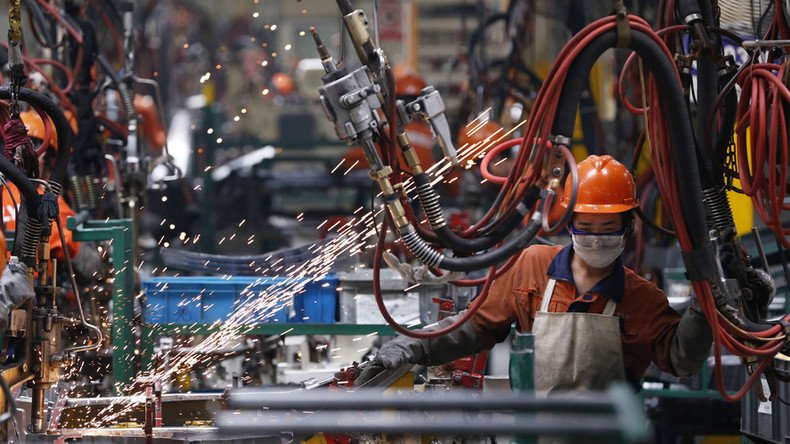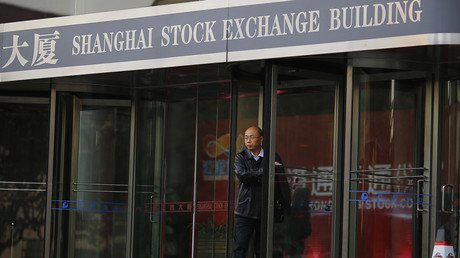China factories continue to lose steam

Official PMI numbers for January show factory activity in China slid to a three year low. The sixth consecutive month of contraction raises concerns about the health of the world's second-biggest economy.
China's PMI hit 49.4, where anything below 50 means contraction.
"Electricity production remained sluggish and crude steel output continued the weak trend in January, reflecting an ongoing deleveraging process in the industrial sectors," Zhou Hao, an economist at Commerzbank told Reuters.
A private survey by Caixin and Markit showed even worse results for the Chinese economy. The data showed the January PMI contracted for the eleventh straight month. The Markit/Caixin survey tracks smaller companies than the official indicator and gave a figure of 48.4, compared to December's 48.2.
"Chinese manufacturers signaled a modest deterioration in operating conditions at the start of 2016, with both output and employment declining at slightly faster rates than in December. Total new business meanwhile fell at the weakest rate in seven months," Markit said in a statement.
However, Beijing’s pivot to a consumer-oriented economy domestically has made investors doubt the value of manufacturing activity in China.
"China has been a two-track economy for the past five years. We have services growing very nicely and the lower track of the economy, which is the industrial sector, remains in a difficult position and it's not going to get out of it quickly," Erwin Sanft, head of China strategy at investment firm Macquarie told CNBC.
Nevertheless, the data put pressure on slumping Chinese stocks. The Shanghai Composite closed 1.78 percent down, while the Shenzhen Composite Index went down slightly more than one percent. Hong Kong’s Hang Seng was losing 0.45 percent as of 9:20am GMT.
The slowdown in the Chinese manufacturing also hit oil prices that were recovering from January’s 12-year lows. US WTI and Brent benchmarks were losing 55 and 50 cents, trading at $33.07 and $35.49 respectively.
China's economic growth went down to 6.9 percent in 2015, the slowest pace in 25 years. According to Reuters sources, Beijing is expected to target economic growth in a range of 6.5 percent to 7 percent this year.














